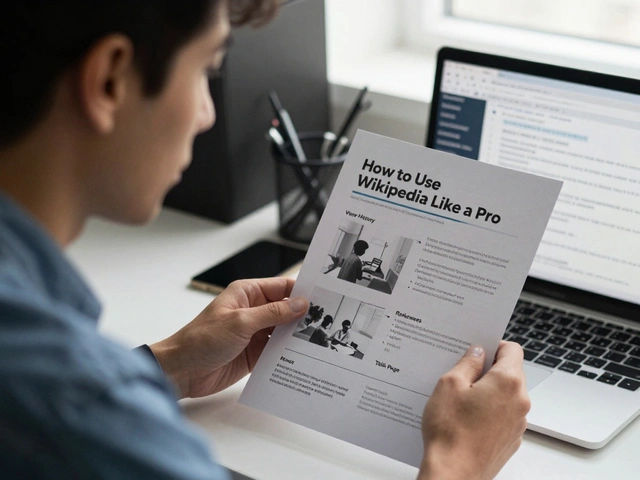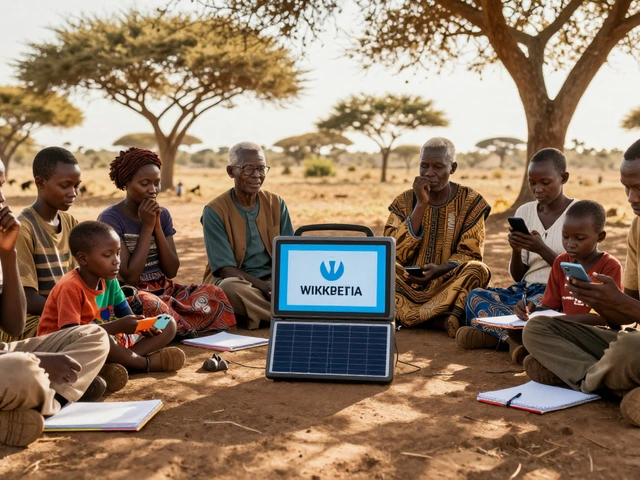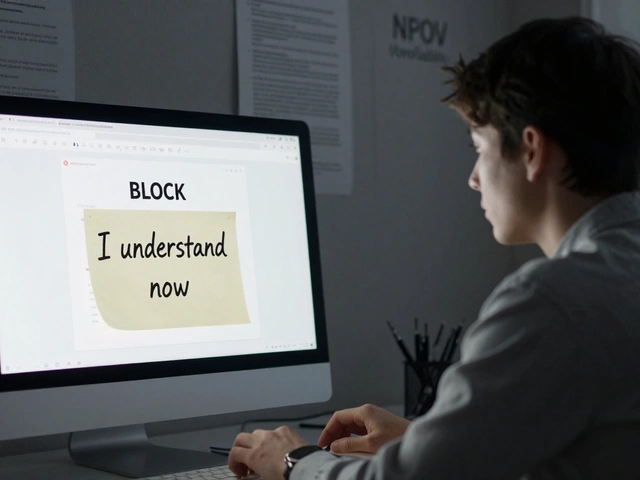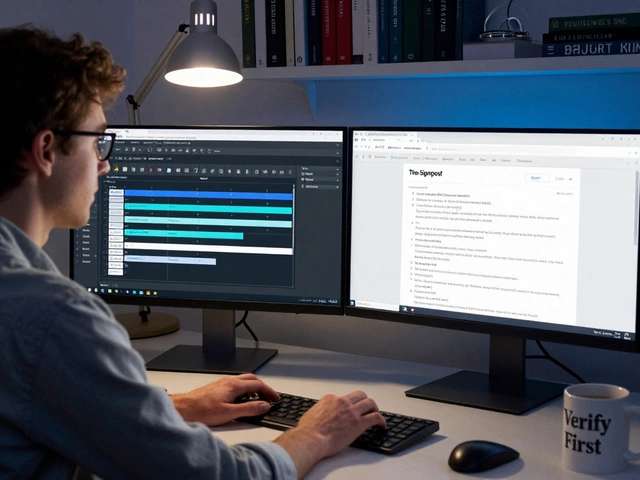
When you read a Wikipedia article, you’re seeing the result of thousands of hours of work. But who’s doing that work? And why? The answer isn’t as simple as "people who care." There are two major models driving online editing: paid editing and volunteer editing. They don’t just pay differently-they attract different people, reward different behaviors, and shape the content in ways most readers never notice.
Who Becomes a Paid Editor?
Paid editors are hired by companies, PR firms, universities, or individuals to improve, update, or steer content on platforms like Wikipedia. They’re often professionals with backgrounds in journalism, communications, or digital marketing. Their goal isn’t to share knowledge for free-it’s to meet a client’s objective. That could mean making a company look better, correcting misinformation about a product, or ensuring a public figure’s biography reads a certain way.In 2023, a study by the Wikimedia Foundation found that about 1.2% of active Wikipedia editors were paid contributors. That sounds small, but those editors were responsible for nearly 15% of edits to corporate and political biographies. They’re not random users. They’re trained. They know the rules. They have templates, style guides, and deadlines. Some work for agencies that specialize in Wikipedia management. Others are in-house content strategists for tech startups or nonprofits.
But here’s the catch: paid editors aren’t allowed to edit in their own interest. Wikipedia’s conflict of interest policy explicitly bans paid editing that favors a client. So most paid editors work behind the scenes-suggesting changes through talk pages, submitting edits under neutral usernames, or training volunteers. A lot of what you see as "organic" improvement might actually be guided by a paycheck.
Who Volunteers to Edit?
Volunteer editors are the backbone of Wikipedia. They’re students, retirees, librarians, engineers, parents, and hobbyists. They don’t get paid. They don’t get a title. They edit because they care about accuracy, fairness, or just the joy of fixing something broken.A 2024 survey of 5,000 active Wikipedia contributors showed that 68% of volunteers were male, with a median age of 37. Most lived in North America, Europe, or East Asia. Over half had a college degree. Nearly 40% worked in tech, education, or research. These aren’t random people-they’re highly educated, digitally fluent, and often time-rich. Many edit during lunch breaks, late at night, or on weekends. Some have edited for over a decade.
But the demographic gap is real. Women make up only 16% of active volunteer editors. People from Africa, Latin America, and South Asia are severely underrepresented. That means the knowledge on Wikipedia reflects the interests and biases of a narrow slice of the global population. A topic like African traditional medicine might have three detailed articles written by Western volunteers-while a local expert in Lagos has never edited a single line.
Quality Differences: Accuracy, Depth, and Bias
Paid editors often bring speed and polish. They know how to cite sources properly, structure content for readability, and avoid common pitfalls like promotional language. A 2022 analysis of pharmaceutical company pages found that articles edited by paid professionals had 34% more citations and 22% fewer violations of neutrality guidelines than those edited only by volunteers.But volunteers bring depth. They’re more likely to dive into obscure topics-local history, niche scientific fields, forgotten artists. A volunteer in Helsinki might spend months researching a 19th-century Finnish composer. A paid editor? They’re more likely to update a CEO’s LinkedIn profile on Wikipedia and move on.
Bias works both ways. Paid editors can introduce corporate bias, even when trying to stay neutral. Volunteer editors can introduce cultural bias. A volunteer from the U.S. might assume everyone knows what "football" means. A volunteer from India might leave out context that seems obvious locally but is critical to international readers.

The Hidden Rules: How Each Model Plays the System
Wikipedia’s rules are the same for everyone. But how people use them? That’s different.Paid editors treat Wikipedia like a project. They track metrics: edit count, citation rate, article quality score. They use tools like WikiWand or ORES to predict which edits will be reverted. They know which administrators to contact if a change gets flagged. They’re strategic.
Volunteers treat it like a conversation. They argue on talk pages. They defend their edits with citations. They get emotionally invested. One volunteer spent 18 months fighting to add a paragraph about a small environmental protest in rural Brazil. It took 47 revisions and three formal disputes. It finally stuck.
Neither model is better. But they’re not equal. Paid editors move faster. Volunteers move deeper. The system works because they balance each other-though not always fairly.
What Happens When One Model Dominates?
There’s a growing concern that paid editing is becoming more common-and more visible. In 2024, the Wikimedia Foundation reported a 27% increase in paid editing activity since 2020. That’s not because more people are getting paid. It’s because more organizations are hiring editors.Big tech companies, lobbying groups, and even political campaigns now have Wikipedia strategies. Some hire agencies. Others train employees. A few try to sneak edits in under fake accounts. The platform’s volunteer community has responded with stricter monitoring tools and automated bots that flag suspicious edits.
Meanwhile, volunteer participation has plateaued. The average volunteer editor now makes fewer than 10 edits per month. Many longtime contributors are retiring. Newcomers aren’t replacing them fast enough. The pool of active editors has shrunk by 8% since 2021.
That’s a problem. If paid editors become the majority, Wikipedia could shift from a community-driven encyclopedia to a corporate-controlled one. Imagine every medical article shaped by pharmaceutical lobbyists. Every political biography rewritten by campaign teams. That’s not speculation-it’s already happening in parts of the site.
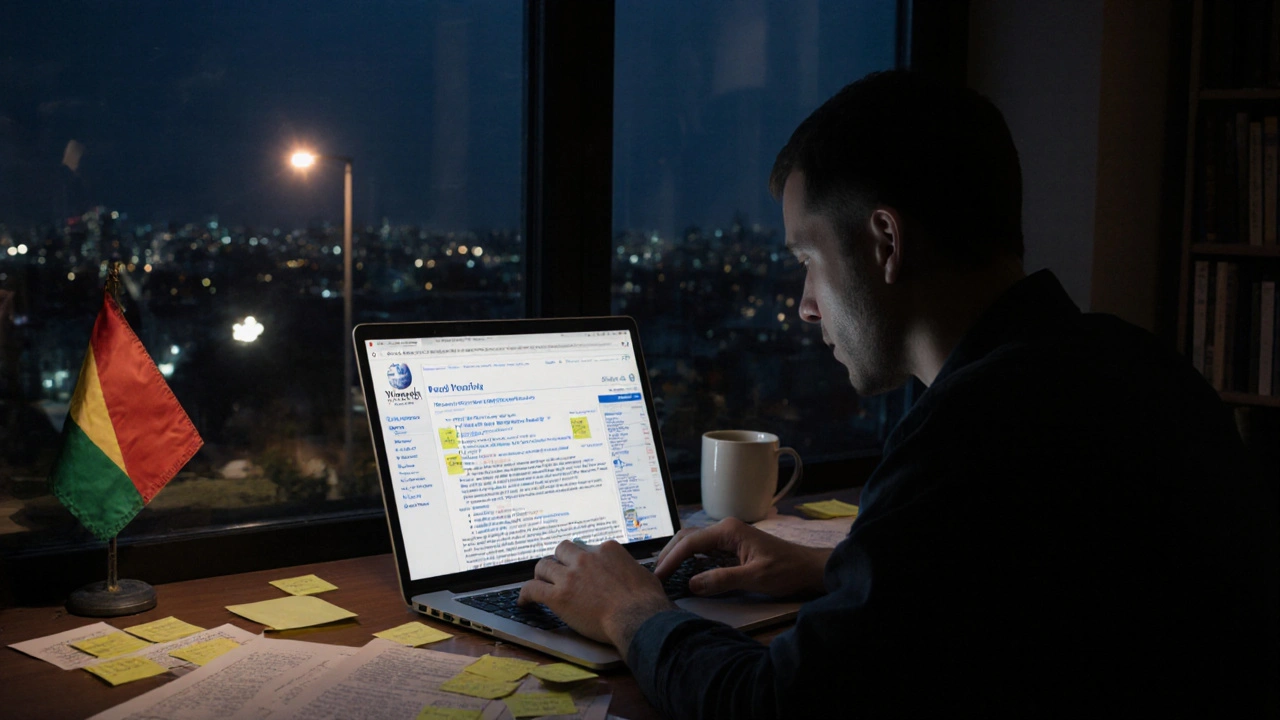
Can the Two Models Coexist?
Yes-but only if the rules are enforced and the system is protected.Wikipedia already has safeguards: mandatory disclosure for paid editors, conflict-of-interest templates, and a robust appeal process. But enforcement is uneven. Some editors report violations. Others don’t. Some admins are strict. Others are overworked.
What’s needed isn’t more rules-it’s more support for volunteers. That means better tools, mentorship programs, and outreach to underrepresented communities. It means paying for training, not editing. It means helping a high school teacher in Nairobi learn how to edit, not hiring a consultant in New York to do it for them.
The best Wikipedia articles aren’t written by the best-paid editors. They’re written by the most passionate ones. And passion doesn’t come with a salary.
What You Can Do
You don’t need to be an expert to help. You just need to care.- Find a Wikipedia article that’s outdated or incomplete. Fix one sentence.
- Check citations. Replace a broken link with a working one.
- Join a WikiProject. There are hundreds focused on topics from African literature to climate science.
- If you’re paid to edit, disclose it. Use the {{paid editing a practice where individuals are compensated to edit content on platforms like Wikipedia}} template.
Wikipedia isn’t perfect. But it’s the closest thing we have to a global, free, and open knowledge library. It survives because of the quiet work of millions of people who show up-not for money, but because they believe knowledge should belong to everyone.
Are paid editors allowed on Wikipedia?
Yes, but with strict rules. Paid editors must disclose their relationship to the subject they’re editing. They cannot directly edit articles about their employer, client, or personal interests without using a neutral account and following Wikipedia’s conflict of interest guidelines. Violations can lead to blocks or bans.
Why do most Wikipedia editors come from Western countries?
Access to reliable internet, education, and free time are major factors. Many volunteer editors are students or professionals in countries with strong digital infrastructure. Language barriers also play a role-English is the most common language for editing, and non-native speakers often lack the confidence or resources to contribute. Efforts to increase participation from Africa, Latin America, and South Asia are growing but still underfunded.
Do paid editors improve article quality?
Studies show they often improve citation quality and neutrality in corporate or political articles. But they rarely add depth to niche topics. Volunteers are more likely to expand obscure subjects, correct cultural gaps, and maintain long-term accuracy. Paid editors excel at polish; volunteers excel at persistence.
Can I get paid to edit Wikipedia?
You can be hired to edit Wikipedia, but you must follow Wikipedia’s conflict of interest policy. Many agencies hire editors to make improvements on behalf of clients. However, you cannot edit directly in your own interest. Most paid editors work anonymously or through neutral accounts. Direct paid editing for personal gain is banned.
How can I become a volunteer editor?
Start by creating a free account on Wikipedia. Pick an article you know something about-maybe a local landmark, a book you read, or a topic from your job. Make a small edit: fix a typo, add a source, update a date. Use the "Sandbox" to practice. Join a WikiProject for support. There’s no test. No degree required. Just curiosity and a willingness to help.
If you’ve ever corrected a Wikipedia error, you’ve already helped shape the world’s largest encyclopedia. That’s not a small thing. It’s the quiet revolution of knowledge.
